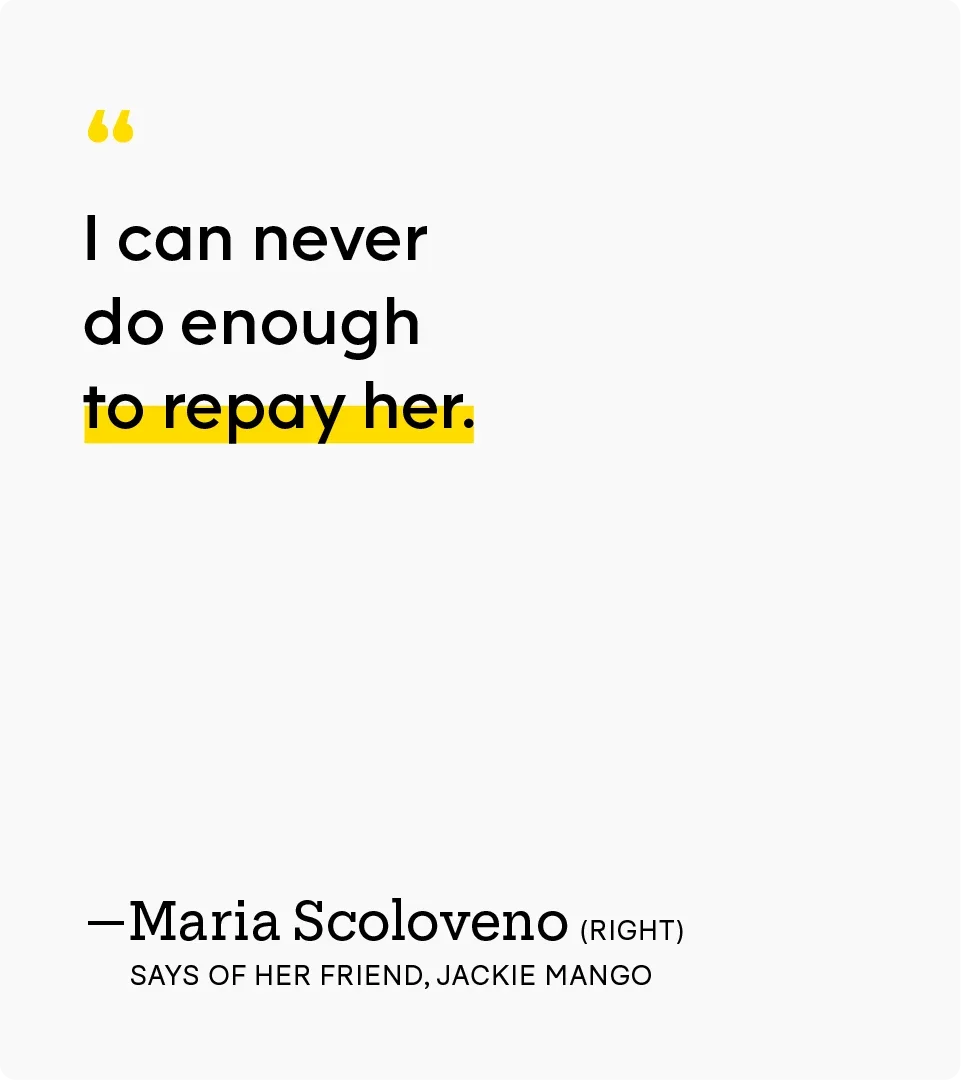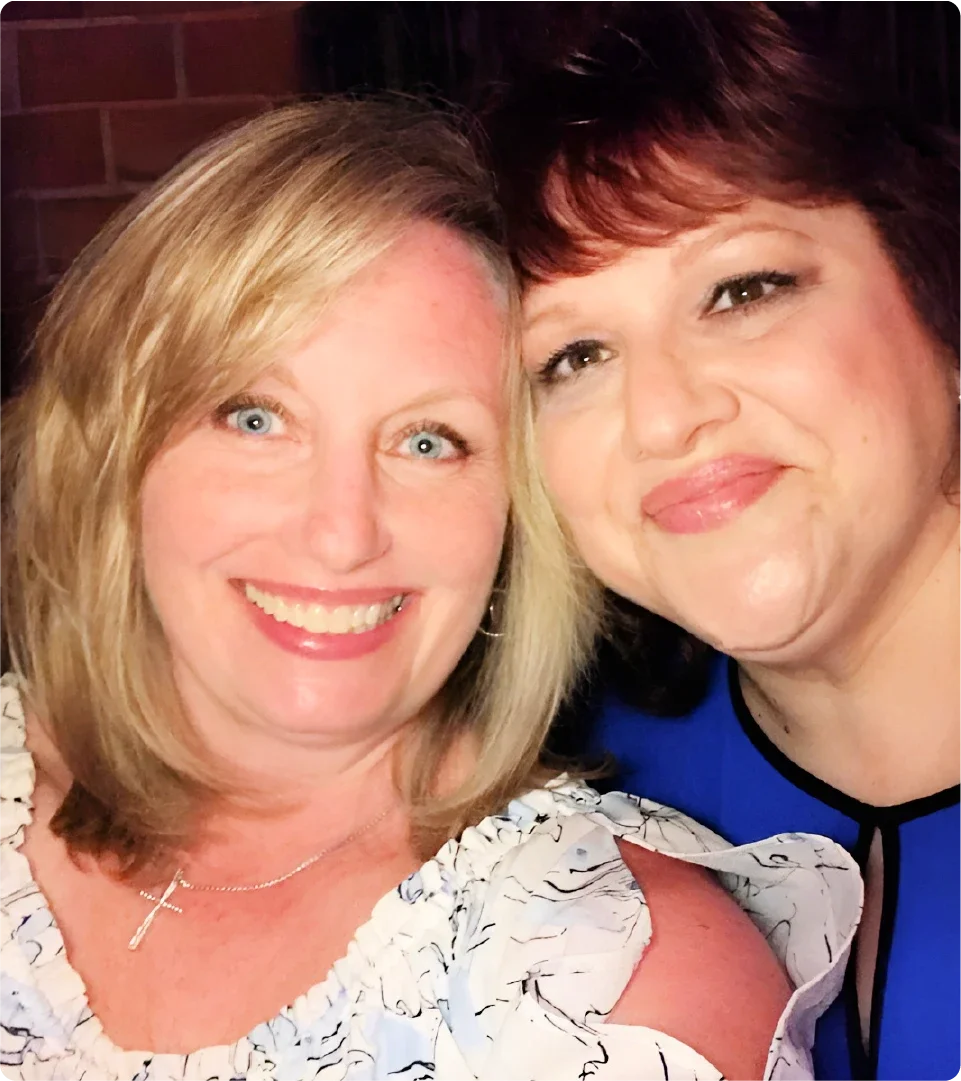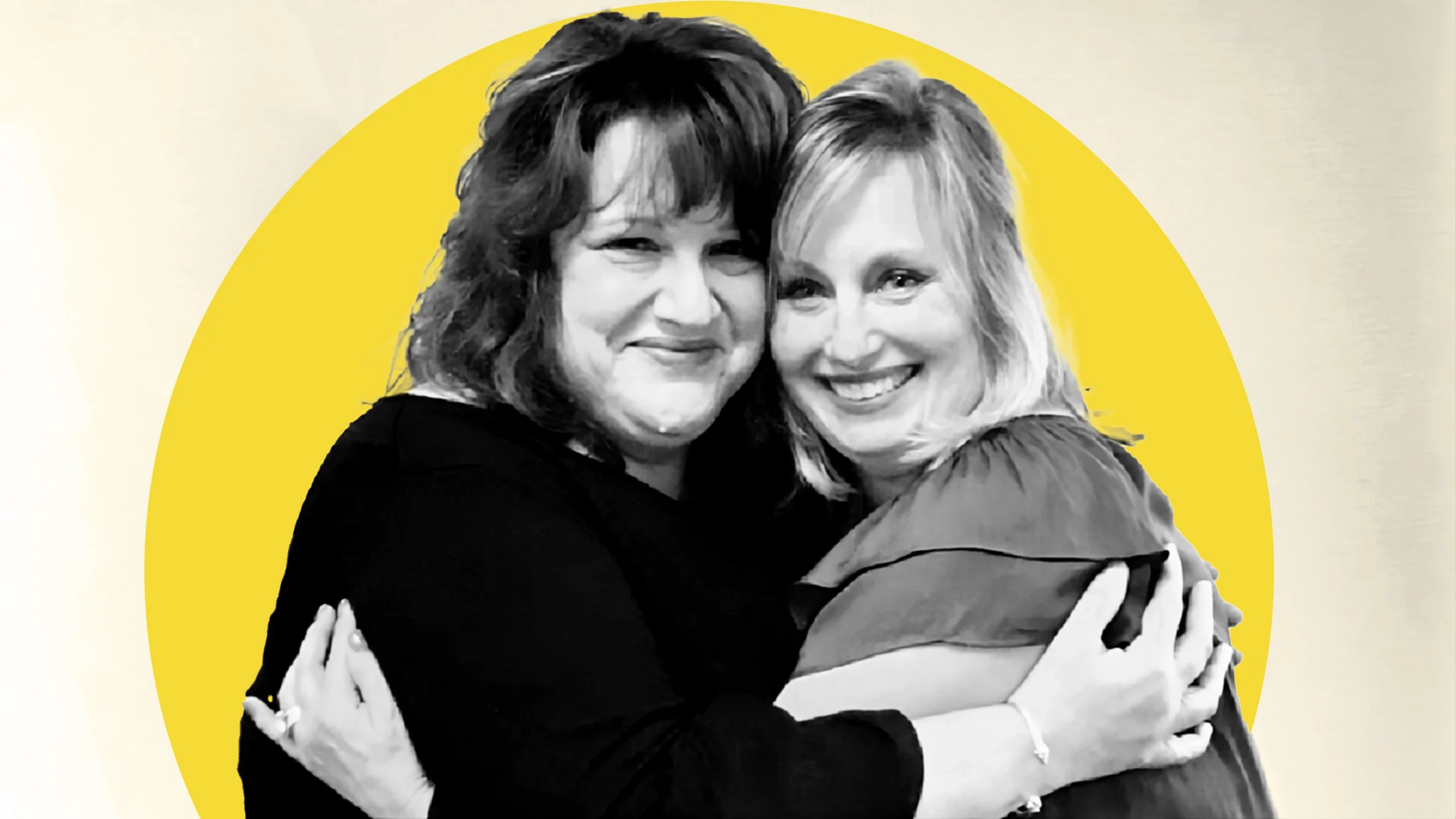Key takeaways:
Maria Scoloveno and Jackie Mango have been friends for more than 30 years.
When Maria needed a kidney donor, Jackie volunteered.
This is the story of their unwavering friendship.
When Maria Scoloveno needed a new kidney, Jackie Mango immediately offered one of hers. The two women had been more like family than friends for more than 30 years. On the outside, the two couldn’t look more different — a brown-eyed brunette and a blue-eyed blonde with different ethnic backgrounds. But inside? They were more alike than anyone could have guessed.
On October 8, 2019, one of Jackie’s kidneys was implanted in Maria’s body. Today both women are thriving.


Jackie Mango and Maria Scoloveno are pictured in a snapshot.
Maria still has her kidney levels checked every 3 months, but she never had to undergo dialysis or endure the mental strain of waiting years for a suitable match.
“I can be here for my husband and family. I’m not confined to a machine,” says Maria, 54, of Branchburg, New Jersey. “You can’t put a price on that.”
Almost 5 years since the transplant, she still gushes when talking about her friend and her incredible gift.
“I can never do enough to repay her. And for me, that was very hard to accept,” Maria says. “I consider myself a giver, not a taker.”
Jackie doesn’t share the story with the same sense of awe. She proudly wears her “Who wouldn’t want a piece of this?” T-shirt, while noting that her quality of life has not been negatively affected by the donation. It would have been if Maria hadn’t found a donor, she says.
“Life is better having Maria in it,” says Jackie, 54, of Martinsville, New Jersey.
- PrografHecoria and Tacrolimus
- NeoralCyclosporine Modified and Gengraf
- SandimmuneCyclosporine
Maria calls her new kidney “Lucy.” Jackie’s kidney, of course, is “Ethel” — like the best friends from the “I Love Lucy” TV show.
When kidney function fails
Maria was 27 when doctors confirmed that she had kidney disease. Still, they had hoped she would never need a transplant.
But in 2017, her kidney function began to deteriorate quickly.
Kidneys remove waste products from the bloodstream. When kidney function falls too low, people need a transplant or dialysis. During dialysis, a person’s blood is removed from their body, run through a machine and cleaned, and then returned. The process takes hours and needs to be done multiple times per week.
The American Kidney Fund says the average wait time for a kidney is 3 to 5 years. Organ donor statistics indicate that in 2023, more than 88,000 Americans were waiting for a kidney transplant, but only 16,000 received one. And each year, nearly 5,000 people on the transplant waiting list die without getting a transplant.
Kidney donors and recipients don’t need to be perfect matches. Doctors consider factors like blood type and tissue type. Advancements in anti-rejection medications have improved transplant success.
Cases of friends or family donating kidneys often make headlines, like Selena Gomez receiving one from her friend. In another story, childhood friends exchanged kidneys, and then their spouses did the same.
In Maria’s case, she had kidney function of about 10% when she got the call saying that Jackie’s kidney could be a viable transplant.
“They said, ‘Jackie’s a match — not 100%, but we could do the surgery,’ ” Maria recalls.
A tale of true friendship
Jackie and Maria met more than 30 years ago when they worked for the same medical technology company. Maria, who had joined the firm first, remembers meeting Jackie and being unsure if she’d like her new colleague.
Then Jackie shared that her mother was about to have surgery and that she was scared and worried for her. Maria was touched when she saw tears in Jackie’s eyes: She lost her own mother when she was 15. For Maria, Jackie’s caring and close relationship with her mother showed that she was someone special.
“She had an old soul, and that drew me to her,” Maria says.
They became fast friends, later bringing their husbands and children into the mix. Jackie supported Maria when she had a stroke at age 25 and was diagnosed with kidney disease. She listened as Maria grappled with ongoing issues, including acid reflux, urinary tract infections, and sticky blood disease. Jackie’s older daughter referred to her mother’s friend as “My Maria,” as if they were related by blood.
When the Mangos learned that Maria needed a new kidney, Jackie immediately stepped forward to be tested. If she hadn’t been a match, she says, her husband, Jeff, was ready to step in.
But from the beginning, Jackie was confident she’d be the one to match.
There was no real reason for this confidence. The pair have different ethnic backgrounds and knew they had different blood types — Jackie is O-, and Maria is AB+.
“The odds were against us,” Maria says. “But she was positive throughout the whole process. ‘I’m going to be a match’ — I needed that.”
And Maria was worried for her friend: What if one of Jackie’s daughters needed a kidney donation at some point? What if Jackie’s remaining kidney failed for some reason? What if something went wrong during the kidney transfer?
Jackie discussed the pros and cons of the surgery with Jeff and their daughters, Megan and Gracie, then ages 21 and 15. “Because this was going to be all of us, I needed the three of them to be supportive and on board,” she says. They were.
“They were scared, but they know Maria,” Jackie says.
They consider themselves lucky
Jackie and Maria had their surgeries on October 8, 2019, at Cooperman Barnabas Medical Center in Livingston, New Jersey. The hospital’s renal and pancreas transplant division is the largest in the Northeast and one of the largest programs in the country.
As it turned out, the timing was fortunate. A few months later, the COVID-19 pandemic would substantially affect living-donor kidney transplant programs and suspend many transplants.
In many cases, those in need of a donated kidney turn down an offered organ in the hopes of receiving one from a donor that’s biologically better suited for success. Maria recognized the gift Jackie was offering.
“She took a gamble,” Jackie says. A closer match “would have been better for her, and [this kidney] meant anti-rejection medicine and steroids for life. But here I was — someone she knew, someone who was healthy — and she could have the transplant as soon as possible. She had to go with it.”
Looking back, Jackie says the pain and recovery challenges she faced after knee surgery in 2021 were worse than what she dealt with post-transplant.
Maria’s recovery was more challenging: She needed constant monitoring, her doctor visits made more challenging by the pandemic. Being immunocompromised meant Maria couldn’t see her generous friend during her recovery.
Still, Maria knows she’s one of the lucky ones. She has chronic kidney disease, but her organs fought for 20 years before starting to fail. She faces a lifetime of monitoring and medical appointments, but those inconveniences are nothing compared with the discomfort and demands of committing to long-term dialysis.
Undergoing a kidney transplant was a major undertaking. But now she and her best friend have a story to tell about the lengths they’ll go for their friendship.

Why trust our experts?

















